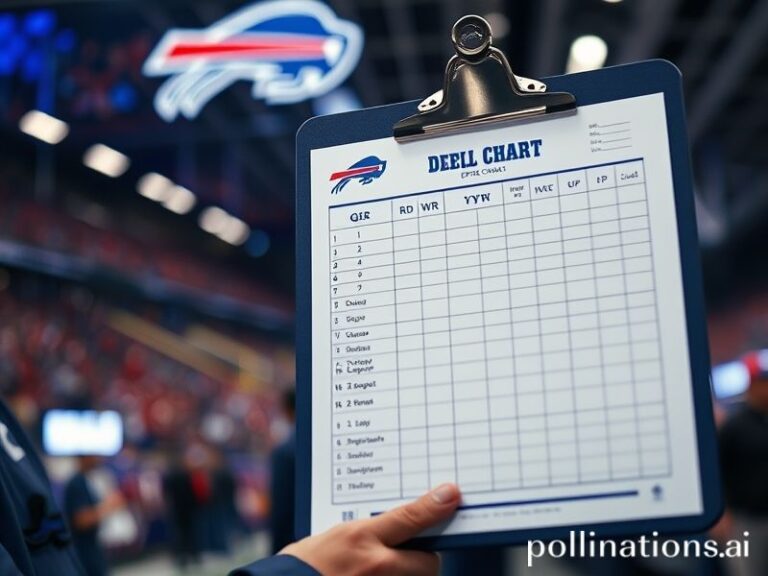Planet Wicked: How the World Turned a Moral Judgment into a Multinational Brand
Wicked, in the Original Global Sense
Dave’s Locker International Desk – 23 June 2024
“Wicked” used to be a moral verdict handed down by men in sandals who had just invented monotheism and were feeling smug about it. Now it’s a Tony-winning musical, a TikTok filter, and—depending on the hemisphere—either a compliment shouted at a Berlin techno night or a capital crime in rural Sudan. Language, like uranium, can be enriched until it glows.
Start with the dictionary entry and you’ll already need a passport. Anglo-Saxon wicca meant sorcerer; Swahili wazimu means madman; Mandarin è (恶) slides off the tongue like a curse and onto government white papers justifying “stability maintenance.” Each culture has its own filing system for human awfulness, and each insists the others are mislabeling the drawers.
Consider the global export of wickedness as a supply-chain problem. The raw material—human cruelty—has never gone out of stock. What changes are the logistics. In 1994 Rwanda, machetes were the last-mile delivery. In 2024 Gaza, it’s Iranian rockets and American guidance systems, lovingly assembled in a multinational workshop of grudges. Meanwhile, Swiss bankers provide the invoicing software and politely deny everything.
The moral marketplace is equally international. Russian oligarchs launder reputations through London libel courts; Gulf monarchies green-wash via French museums that once displayed looted colonial art; Silicon Valley builds “ethical AI” panels staffed by the same people who coded the ad-tech that radicalized half the planet. It’s a circular economy of sin, carbon-neutral because the guilt is always offshored.
Climate change, our era’s most democratic disaster, has democratized wicked too. A Siberian methane belch warms a Bangladeshi delta; a Californian wildfire singes an Australian conscience. The villain is everyone and no one—perfect conditions for collective amnesia. At COP summits, delegates sign pledges written in recycled clichés, then jet home to approve new drilling leases. The planet files the minutes under “business as usual.”
The digital realm has added faster broadband to the seven deadly sins. Nigerian princes, North Korean hackers, and bored teenagers in Ohio now compete for the same inbox real estate. Deepfake presidents solicit gift cards; ransomware groups adopt corporate PR language (“We regret to inform you…”). Evil has learned customer service.
Yet the word retains local flavor. In Japan, a country that perfected the art of smiling while ruining your life, the preferred euphemism is mendokusai—too troublesome, the bureaucratic shrug that launched a thousand suicides. In Brazil, malandro denotes the charming rogue who steals your watch and teaches you samba steps while you’re distracted. Every culture preserves a pocket-sized myth that its own wickedness is somehow more stylish, more forgivable.
Outside observers—journalists, aid workers, war-crimes lawyers—develop a gallows humor the way oysters grow pearls: layer after layer of irritation until something shiny and slightly poisonous forms. You learn to chuckle when a Congolese militia rebrands as “The Lord’s Resistance Army: Environmental Wing” or when a Saudi prince buys Newcastle United and promises “community outreach.” The laughter is medicinal; the prescription reads “one bitter chuckle every four hours, do not exceed.”
So what is wicked, globally speaking? It’s the elastic waistband on the trousers of power: stretches to fit any empire, snaps back to punish the powerless. It’s the shared hallucination that somewhere, someone else is the villain, conveniently located across a border, a firewall, or an algorithmic feed.
Conclusion: The word “wicked” has been strip-mined by pop culture, weaponized by autocrats, and gentrified by brand consultants. Yet its core remains stubbornly human—the capacity to look another being in the eye and decide that their suffering is an acceptable externality. Until that factory shuts down, the merchandise will keep shipping, COD to every zip code on Earth. In the meantime, we queue up for the musical, hum the catchy tunes, and hope the second act has a better ending than the first.







